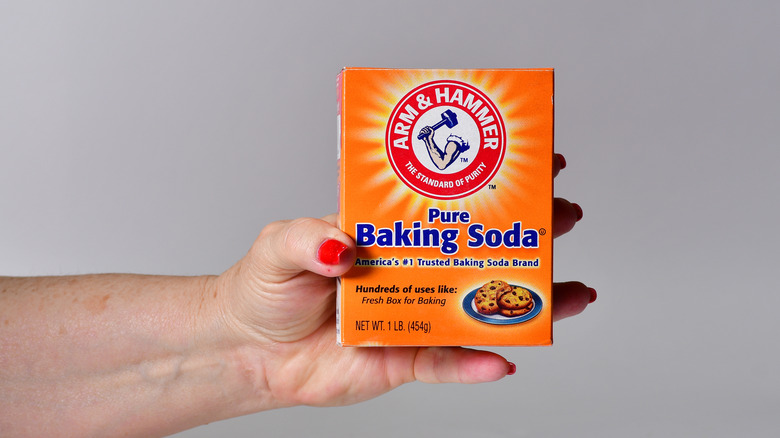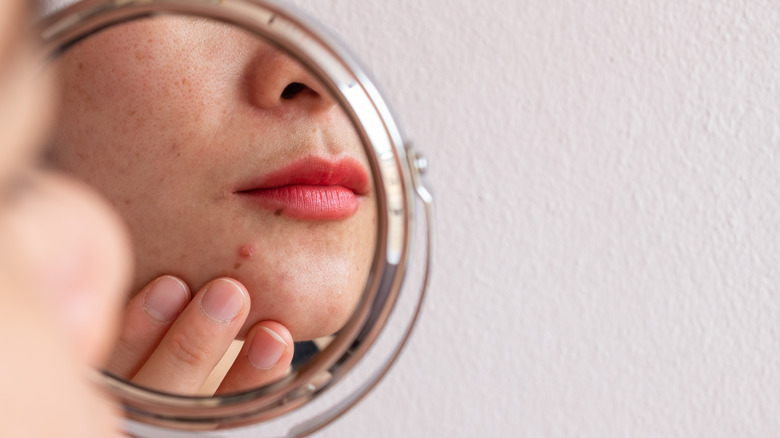Does Baking Soda Help With Acne?
Acne is often an unwanted addition to our faces, so many people turn to creams, lotions, and even baking soda for acne treatments. While certain creams and lotions may be designed specifically for acne, baking soda is actually an ingredient often used for baking and other tasks, like cleaning. When it comes to using baking soda for acne, less is always more, or preferably, none at all. According to Medical News Today, baking soda spot treatments may be able to help rid of certain pimples, but they shouldn't be used as a long-term treatment.
In fact, baking soda can easily dry out skin, so it's recommended to always use moisturizer after baking soda spot treatments. However, by applying baking soda to your face, you risk removing protective oils. Because of this risk, experts tend to advise against using baking soda to treat acne.
Depending on your skin type, baking soda can cause some people to break out more than they did previously. It can leave you with skin irritation and inflammation, Healthline reports. So, while it may seem to work, you may be left with pain, discomfort, or early onset of wrinkles.
Baking soda acne treatments can be dangerous
Since baking soda can cause your skin to dry out, it can also change your skin's pH level because skin is naturally acidic. According to Healthline, our skin can range from 4.5 to 5.5 on the pH scale, which measures from 0 to 14. Anything under 7 is acidic while all numbers above 7 are alkaline. Baking soda has a higher pH, measuring around 9, putting you at risk of stripping your face of its natural oils once you put baking soda on your face. The oils on your face are meant to keep you safe from bacteria and sunlight.
It's best for you to avoid using baking soda for acne treatments and make the switch to other exfoliant options. Beverly Hills MD reports you can use a gentle cleanser to clean and moisturize your face. Avoiding baking soda as an acne treatment will help your skin stay smooth, moisturized, and irritation-free. Reach out to a dermatologist if you can't seem to resolve any of your skin conditions at home.


